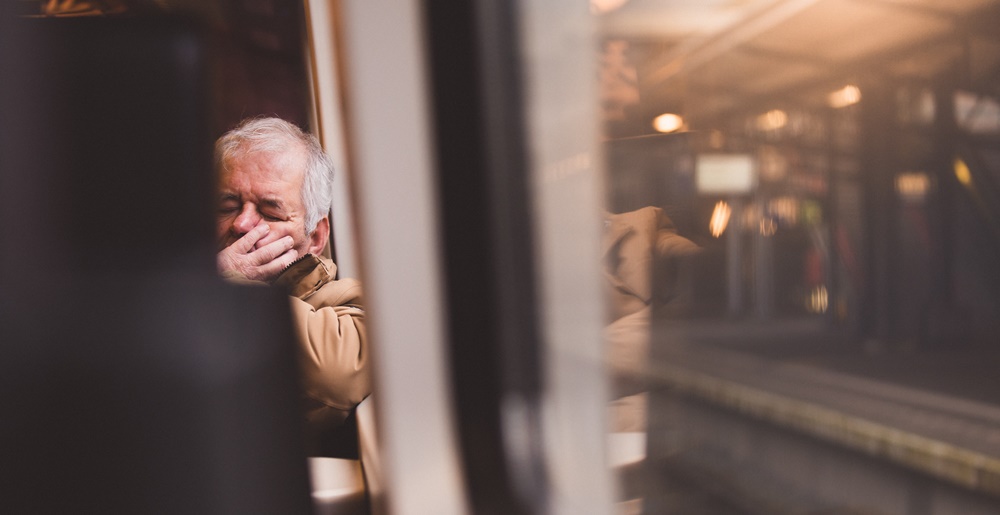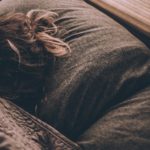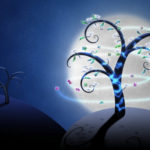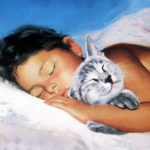Why do old people sleep less?
Sleep is defined as unconsciousness. It can be divided into two types – one is slow-wave sleep and the other is rapid eye movement sleep (REM sleep).
Types of sleep
Most of the sleep at night is of slow-wave variety. This sleep is deep and restful and occurs during the first hours of sleep at night. REM sleep occupies about 25% of sleep and is characterized by rapid movements of the eyes. This sleep occurs at a frequency of every 90 minutes and is associated with dreams.
Slow-wave sleep: This is deep sleep which is exceedingly restful and rejuvenating. It results in a reduction of peripheral vascular resistance resulting in a lowering of blood pressure, respiratory rate, and metabolic rate during sleep. Dreams occur during this sleep also but are forgotten after waking up. Nightmares may also occur during this type of sleep.
REM sleep: This sleep is of shorter duration than slow-wave sleep and lasts up to 30 minutes. When a person is extremely sleepy, the REM sleep is very short or even absent. As a person becomes more rested after prolonged sleep, REM sleep duration increases. This less deep sleep is associated with dreaming and muscular movements. The heart rate and respiratory rate usually become irregular. EEG studies have shown that the brain is highly active in REM sleep. Brain metabolism may increase by 20% during REM sleep, which is why it is called paradoxical sleep as the person is asleep while the brain is active.
Sleep pattern changes in elderly people
The total sleep time required in old age remains the same, which is 7 to 9 hours. These people find it difficult to fall asleep and wake up more often. The duration of deep sleep decreases significantly. Most of their sleep is lighter and dreamless. Although total sleep time tends to remain similar, older people spend more time in the lighter stages of sleep than in deep sleep. There is also a change in the sleep rhythm. The sleep timing is shifted; older people tend to sleep early and wake up early. The reason for this change in pattern is not completely known.
Many people get up three to four times at night and these repeated awakenings result in less time spent in deep sleep. They remain less satisfied with sleep and more tired during the day. The reasons for getting up at night may include nocturia (increased frequency of urination at night), anxiety disorder, and discomfort associated with chronic diseases like rheumatoid arthritis. Diseases like diabetes or enlarged prostate result in nocturia. Breathing difficulty in lying down position is associated with heart diseases and hypertension, thereby awakening these patients at night. Chronic deprivation of sleep may result in depression. A medical consult should be taken for such a condition.
Reason for altered sleep in old age
With aging, multiple factors in the body undergo changes that control or affect sleep. One of the most common effects of aging is a change in the hormonal pattern. There is a gradual reduction in the levels of two hormones that affect sleep, called melatonin and growth hormone. With a reduction of melatonin, the sleep cycle shift to earlier timings resulting in evening sleepiness and early morning awakening. The growth hormone is associated with deep sleep which is so refreshing. The secretion of this hormone reduces considerably in old age which results in shallower sleep. That is why many old people feel tired during the day or sleep-deprived.
There are other lifestyle changes that affect sleep in older people. These include a reduction in exercise and outdoor activities. Many old people resort to mid-day napping as they are idle at home. Because of these habits, there is difficulty sleeping at night.
If sleep deprivation occurs, a medical consult should be taken as there may be an underlying disease. Lifestyle modifications like exercise walks or other outdoor activities will help in improving sleep.




























